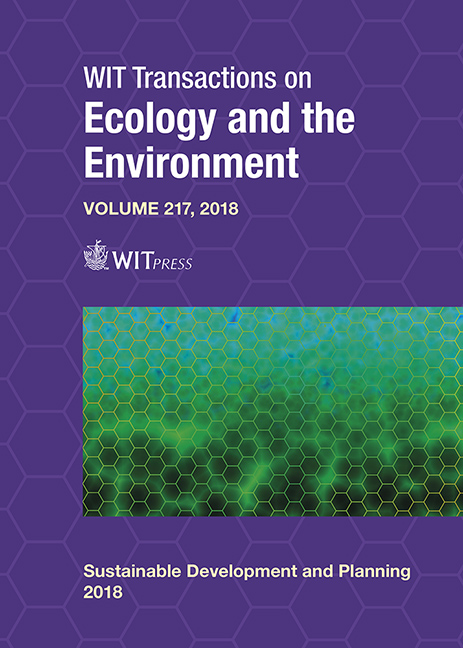ENVIRONMENTAL CHANGE AND A QUALITATIVE APPROACH TO THE PRODUCTION SYSTEM IN “IRRIGATED PERIMETERS”: CURRENT MODEL IN THE LOWER SAN FRANCISCO SERGIPANO, NORTHEASTERN BRAZIL
Price
Free (open access)
Transaction
Volume
217
Pages
10
Page Range
145 - 154
Published
2018
Size
240 kb
Paper DOI
10.2495/SDP180141
Copyright
WIT Press
Author(s)
GEDÁLIA C. SANTOS
Abstract
Until the 70s, the fertile Low San Francisco (LSF) Valley had several floodplain areas designed for rice-growing. For centuries, the San Francisco (SF) river floods allowed the riverbank population to develop their traditional systems for “rizicultura” (rice-growing), fishing and livestock farming. The building of the Sobradinho Dam changed the SF’s river bed, causing serious environmental changes in the floodplain’s ecosystem, its landscaping model, its use of the land in the valley’s production system, going from a natural flood-dependant rice-growing agroecosystem to drainage and watering one. This study examines the impact farmers face with the current rice-growing model in the Lower San Francisco Sergipano (LSFS) and looks into how to minimize its effects as well as restoration strategies for these areas. The study was carried out at the LSFS’s “Irrigated Perimeters”, in Betume and Propriá (a sub-region within LSF Valley), Northeastern Brazil (NEB) with key informants (farmers and Agricultural technicians). The results showed the impact on environmental, technical, social, economic and political levels. The study seeks to contribute with a reflection on the issues the key informants encounter with the current rice-growing model in these areas, which are a direct result of the change in the use of the land. It also hopes to generate discussions at governmental, scientific and social levels, where more complete environmental studies can be contemplated, focusing on the impacts of these actions on the LSF valley in the future.
Keywords
aquaculture, Betume, “Irrigated Perimeters”, “Propriá”, “rizicultura”, “ratadas”, San Francisco, Sergipe





